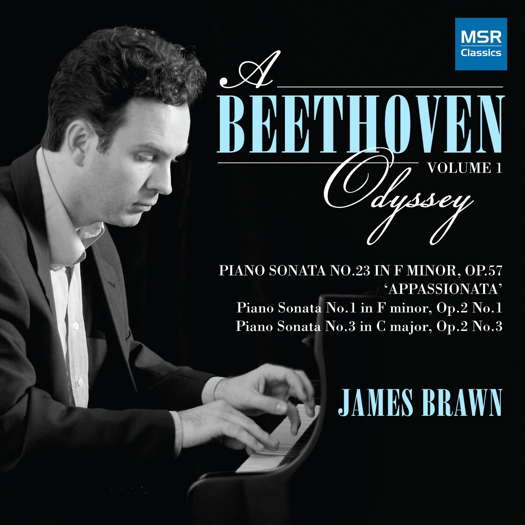 SPONSORED: An Outstanding Evening - Bill Newman listens to American pianist Rorianne Schrade.
SPONSORED: An Outstanding Evening - Bill Newman listens to American pianist Rorianne Schrade.
All sponsored features >>
Schubert's Octet and the Spirit of Vienna
GIUSEPPE PENNISI reports from the final concert of a Schubert festival in Rome
A small but high quality Schubert festival took place from 13 to 17 September 2022 in the central garden of the National Etruscan Museum of the magnificent Villa Giulia in Rome, Italy. I listened to the last concert of those scheduled: the Octet (generally called, even in Germany, Ottetto, in Italian). Due to the unusual size and structure of the ensemble required, it is not often present in the programs of chamber music seasons. It was performed by Il Pomo d'Oro, an orchestra specializing in early music, which I had heard, years ago, give excellent performances at the Enescu Festival in Bucharest. Despite the cold weather and gusts of wind - in a few hours the temperature in Rome dropped by more than ten degrees - the concert was sold out and the spectators remained until the end. The performance was preceded by a dialogue-presentation by Francesco Antonioni (artistic director of the cycle) and Maria Vittoria Marini Clarelli (one of the directors of the Ministry of Culture). The members of the ensemble were Zefira Valova (violin), Nicholas Robinson (violin), Archimede De Martini (cello), Ludovico Minasi (cello), Jonathan Alvarez (double bass), Francesco Spendolini (clarinet), Alejandro Perez (bassoon) and Christian Binde (horn).
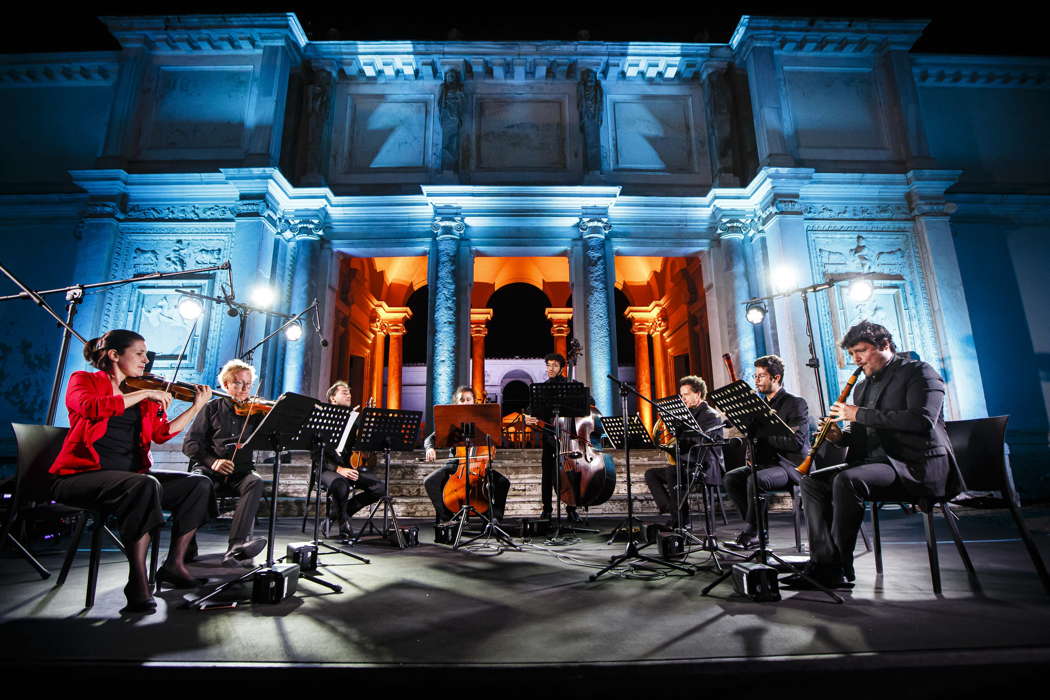
Il Pomo d'Oro performing Schubert's Octet in the gardens of the Villa Giulia in Rome. Photo © 2022 Flavio Janniello
The Octet was written by Schubert in a short time, in 1824, commissioned by Archduke Rudolf's aide, Count Ferdinand Troyer, an amateur clarinet player. When he invited the musician to compose the Octet, he imposed the clause that it was 'exactly like Beethoven's Septimino' [Septet]. The characteristic was and is that the musicians do not have a conductor. They must coordinate themselves while playing, that is, a real exercise in mastery.
The work that Schubert gave him was similar to the model. The composition of the winds, with the clarinet, horn and bassoon is identical. (The septet turns into an octet only because Schubert adds a violin to the strings.) The number of movements is the same, six as in Beethoven, and the order in which they are arranged is the same. After some private performances, the Octet was presented to the Viennese public on 16 April 1827 while publication took place twenty-five years after the composer's death.
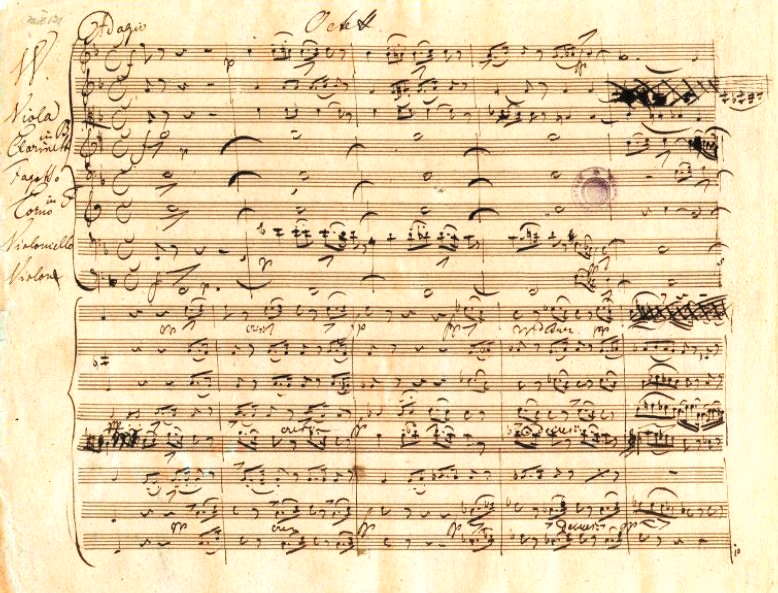
The first page of Schubert's Octet in the composer's manuscript
In the performance at Villa Giulia, violinist Zefira Valova started the ball rolling and indicated the movements, as well as coordinating the whole group. Schubert's lyrical and romantically cantabile temperament is present from the first movement with two themes, one slow and the other lively, alternating and fused with an instrumental sensitivity of elegant workmanship. Full of melancholic musicality is the Adagio, dominated by the pasty timbre of the clarinet, without sacrificing the strings too much. The Allegro vivace is a scherzo of sparkling tone and with humorous veins, interspersed with a trio with vaguely popular and dancing accents. The Andante is a theme with variations, which takes up and develops the idyllic motif of a love duet composed by Schubert in 1815. Particularly caressing in its nuanced dance rhythm is the Minuet with the distant chords of the horn. A sense of suspension and expectation is perceived in the Andante, very much on the vibrato of the strings; but only briefly, as everything returns clearly and serenely in the final Allegro, like a rainbow after the storm. According to English musicologist Maurice Brown, several scholars have pointed out the fact that the Octet 'summarizes the spirit of Vienna Biedermeier, with the music of its streets, its Caffehäuser, its theaters, its Prater, its dance halls'.
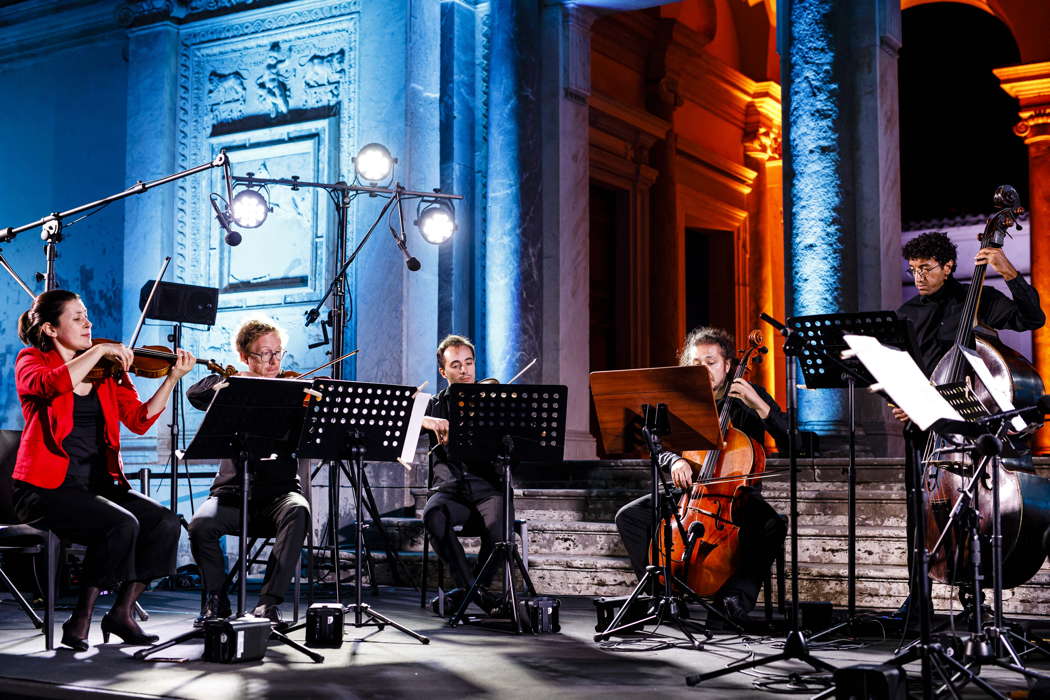
Il Pomo d'Oro's string players playing Schubert in Rome. Photo © 2022 Flavio Janniello
Despite various echoes, including the common reference to the Serenade, the Octet remains an incontrovertible expression of the truest Schubert, in the sweet romantic intimacy, the serene inventiveness of the melodies, the enchanted tenderness, the melancholy purity and in the poetic dimension of the whole. Italian musicologist Paolo Petazzi wrote correctly that 'All this, of course, is achieved through a writing of exemplary chamber purity: the fusion between the five strings and the three winds and the multiple combinations they can give life to are exploited by Schubert in a masterly way, with results of extraordinary timbre suggestion'.
In the short initial Adagio, Il Pomo d'Oro created a suggestive and mysterious atmosphere, which introduced the next Allegro, in which the lively game of the instruments was crossed at times by subdued restlessness. Eighteenth-century echoes were felt in this section. In the second half Andante un poco mosso, a clearly romantic atmosphere of anxious and dreamy contemplation articulated by the melody of the clarinet was emphasized. The Allegro vivace is a scherzo with a wide symphonic slant. In the fourth movement, Andante, Schubert, as reported above, takes up the theme of a romantic duet, composed in 1815. In this performance, the melodic line of the theme, exposed by the strings and the clarinet, was then taken up from time to time by each of the instruments which, with their own particular accents, performed almost all in elegant arabesques of gallant reminiscence. The Minuet is a tribute to the spirit of Viennese worldliness of the time. After a very brief introductory Andante molto of dramatic expressive force, the final Allegro launched, with impetuous trend here and there, slowed down by sudden stops, towards the sparkling choral conclusion in which the ensemble excelled, strongly rhythmic in the first part and with references to the picturesque lively Viennese dances of pure popular flavour.
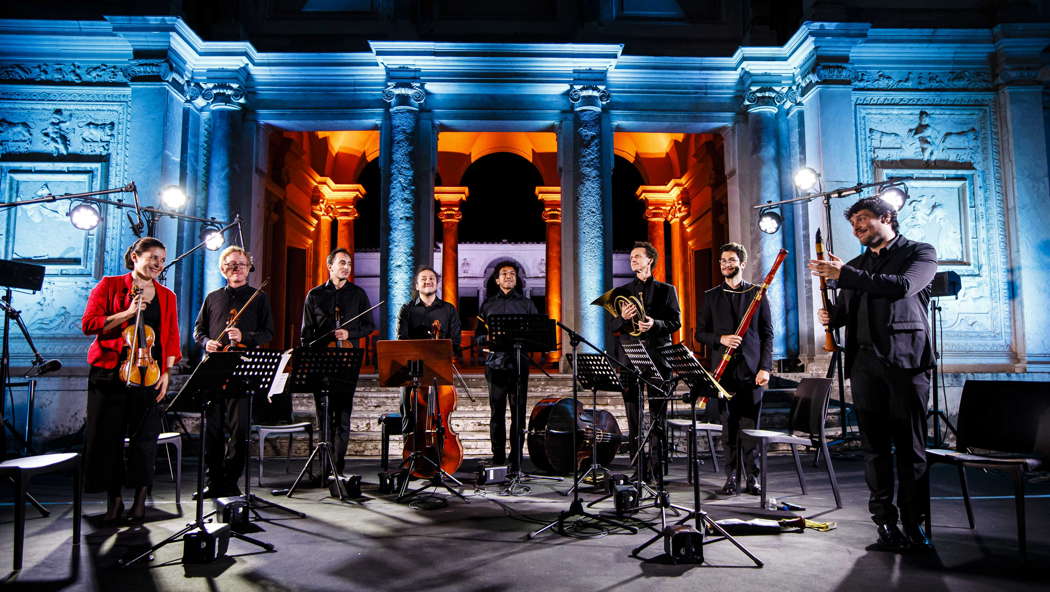
The members of Il Pomo d'Oro at the end of their performance of Schubert's Octet in Rome. Photo © 2022 Flavio Janniello
Although the weather was cold, the audience cheered and applauded.
Copyright © 19 September 2022
Giuseppe Pennisi,
Rome, Italy



